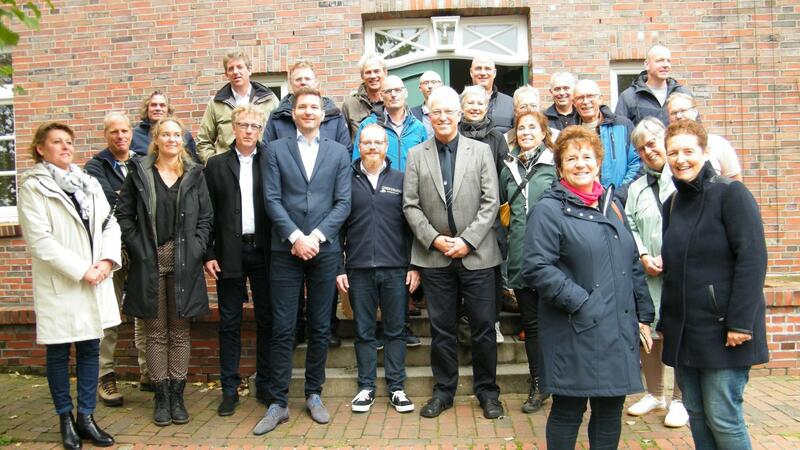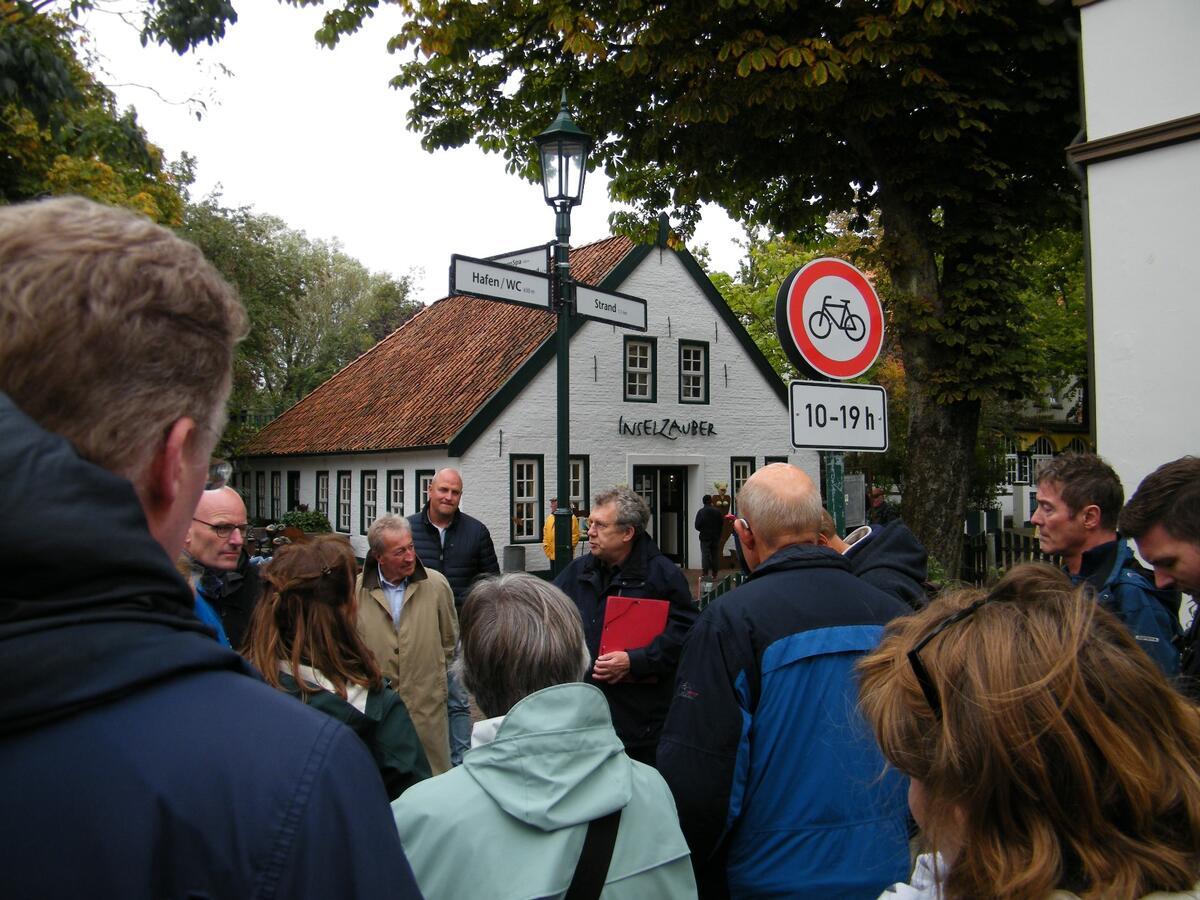Dutch tourism delegations in East Frisia to exchange knowhow on sustainable tourism

As the Wadden Sea World Heritage is one ecosystem shared by three countries, Entrepreneurs, destination marketing organisations and local government also share the same challenges. That is why this October two groups from the Netherlands went to the German East Frisian coast to visit projects, entrepreneurs and exchange views on local economy, sustainability as well as tourism. One group of 17 local politicians and supporting civil servants came from the councils of Waadhoeke and Harlingen. The other group of 24 people came from the island of Ameland; among them the destination management organisation (DMO) and entrepreneurs. The welcome by the host in Germany was overwhelming and ideas came up for a return visit to the Netherlands.
The local destination marketing organisation presented the development of the last years, the challenges and future plans. Topics such as the development of the beach area, targeted marketing and investing in real time synchronisation with larger booking sites were discussed. Another subjet was the steep increase of campervan vacationers, which was taken home by the Dutch delegation as call to increase facilities for this group at the Dutch coast. The wellness sector is also prominent, which numbers of visitors still increasing in Carolinensiel. Different to the Netherlands, in Germany the local DMOs are finances via the “Kurtax” by the local authority. The DMO in turn develops new projects as well as the local tourism concept. This way the DMO has much more influence over the quality and choices of touristic offers.
The Leybucht in Greetsiel was visited to compare its concept to the plans for Holwerd at Sea. The biological farmer Heiko Dreyer of Biolandhof Agena showcased his approach to creating added value for products through direct online marketing. He discussed the challenge to include more gastronomy entrepreneurs as clients as the price is still an issue.
Hotel owners stressed the importance to make choices, such as planning for the future while things are going well. Examples were the conversing of a hotel to a family hotel and demolishing an entire facility in favour of a new hotel, which is bigger and more sustainable for the coming decades. Joke Pouliart, mudflat guide and apartment rental entrepreneur, showcased his approach to combine sustainability with World Heritage education.
Ferry companies shared their complex logistics and demonstrate local differences. Common concerns about the uncertainty of future trends were expressed, such the role of autonomous cars in parking lots, car ownership among future generations, public transport access and cater for luggage transport. In regard to climate change the impacts of sea level rise and increasing sedimentation to ferry ways as well as future ship construction were discussed.
Sustainable energy was also discussed. The visited region is more than 200% self-reliant for electricity. However, most windmills are located on the mainland, raising the question of possibly spoiling the view on the World Heritage site.
During the meeting between representatives of Ameland and Spiekeroog it became clear that islands in the Netherlands and Germany have similar problems. A call was made for organising a meeting with all Waddens Sea islands to discuss similar problems like the disequilibrium of national and European Rules for Island communities, the challenges of liveability and ferry issues.
The study trips are part of the trilateral sustainable tourism strategy and serve as inspiration for the Prowad Link project. The Dutch delegations are full of compliments for the commitment of the hosts and look forward to the day they may welcome them in the Netherlands.

